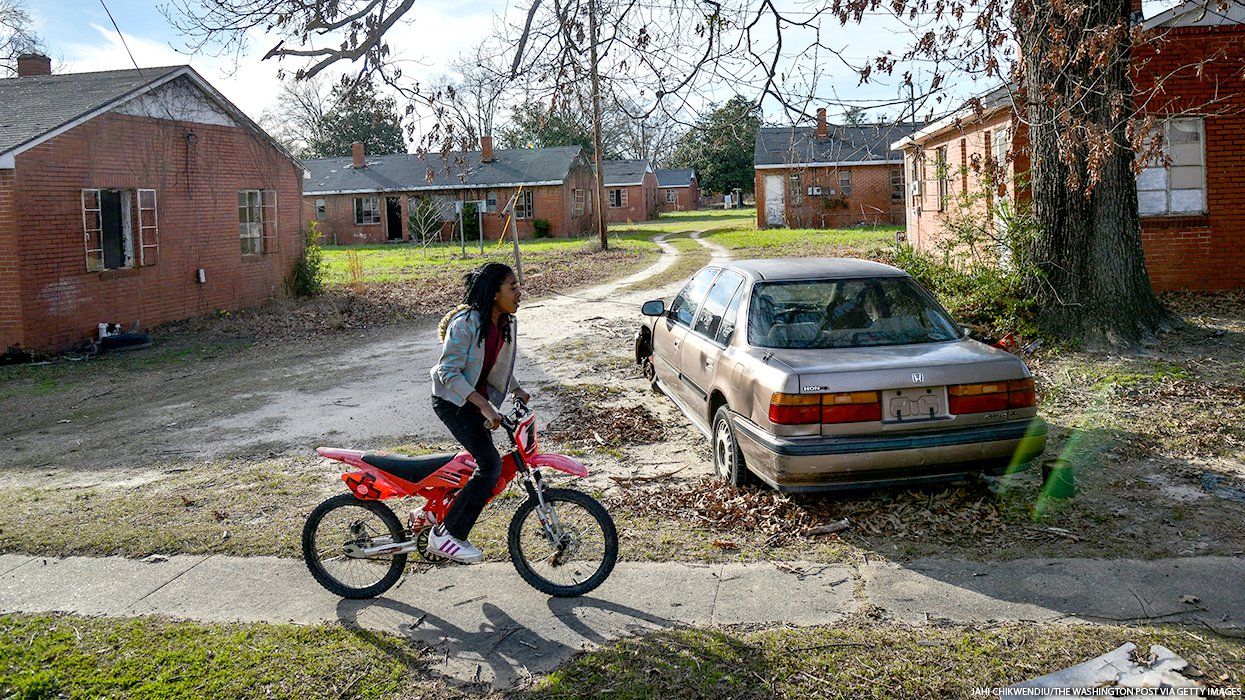An Alabama community flooded with sewage is finally seeing justice.
For years in Lowndes County, residents have faced sewage backups caused by poor infrastructure. Septic systems that cannot properly drain have continuously pushed raw sewage to the surface, flooding yards and roads with waste water. Because of the high cost of septic tanks, residents have taken to constructing makeshift pipes or ditches to redirect sewage away from their properties, which the Alabama Department of Public Health has threatened them with criminal punishment over.
In the area where three-quarters of residents are Black, according to census data, residents have developed hookworm — an intestinal parasite previously thought to be eradicated in the South.
After 18 months of investigation by the Justice Department and the Department of Health and Human Services, the agencies determined that the ADPH has discriminated against the Black community for denying them access to sanitation services, writing that they consistently “threatened residents of Lowndes County with criminal penalties and even potential property loss for sanitation conditions they did not have the capacity to alleviate."
"Despite ADPH’s awareness of the issues and the disproportionate burden and impact placed on Black residents in Lowndes County, it failed to take meaningful actions to remedy these conditions," a report released by the Biden Administration Thursday stated.
To avoid federal action, the ADPH must now suspend criminal penalties against residents who cannot purchase septic tanks. They also must create a “sustainable and equitable” plan to update infrastructure, as well as “consistently engage with community residents, local government officials, experts in wastewater, infrastructure, soil and engineering, and environmental and public health experts and advocates."
“Today starts a new chapter for Black residents of Lowndes County, Alabama who have endured health dangers, indignities and racial injustice for far too long,” said Assistant Attorney General Kristen Clarke of the Justice Department’s Civil Rights Division. “Our agreement puts Lowndes County on a path to long overdue reform as the state now takes steps necessary to provide access to basic sanitation services, end exposure to raw sewage and improve health outcomes for marginalized communities."


















































